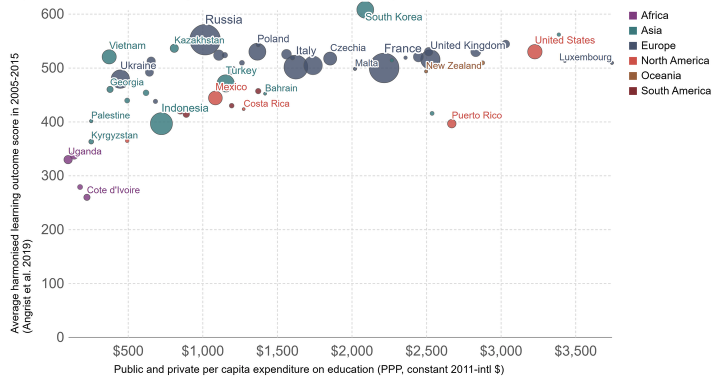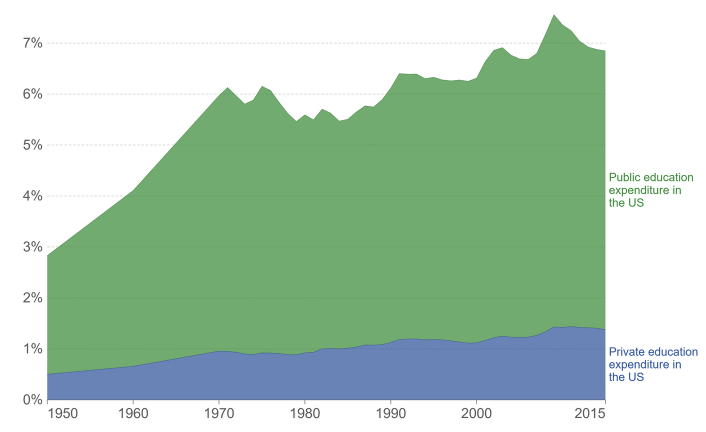Freddie deBoer is a full-on socialist and also a former teacher. He’s therefore the last person you’d expect to doubt the effectiveness of more spending on schools.
And yet he’s looked at the data and is hard-pressed to find a link between educational expenditure and educational outcomes. For instance, take a look at the country comparisons in this chart:

As you can see, the poorest countries that can afford the least do worst — as one might expect. However, after a certain level of expenditure any extra funding makes little difference to country outcomes. DeBoer points out that “the USA spends something like 8 times what Vietnam spends per student and performs just about exactly as well.”
Obviously, a given budget goes a lot further in some countries than others — but note that these expenditure figures are adjusted for purchasing power.
As well as comparing countries, deBoer looks at the impact of the increase in educational spending within one specific country: the United States. As a share of GDP, US educational spending has more than doubled since the 1950s: there’s a lot more money sloshing around the education system.

What’s more, policy-makers have got much better at directing resources towards the most disadvantaged pupils. So, after “throwing money at our achievement gaps for 40 years” have we seen corresponding improvements in outcomes and greater equity between educational cohorts? No, says deBoer, “we’ve burned money on it and gotten nowhere.”
It’s not that extra resources can’t make a difference. At a micro-level we have plenty of evidence that they can. The clearest example is the so-called “2 sigma problem”. This was a 1984 study (whose findings have since been replicated) that randomly assigned pupils one-to-one tutoring. The difference made to outcomes was enormous — two standard deviations’ worth.
The ‘problem’ with the 2 sigma problem is that we don’t have the resources to scale-up these methods. Nevertheless, it does demonstrate that individual educational outcomes aren’t fixed, and that, in the right circumstances, a difference can be made — even if it isn’t as spectacular at scale as can be achieved with intensive interventions.
And so the question remains, why doesn’t more spending make a bigger difference at the macro-level? Is the explanation that education systems are wasting their extra resources? Or are factors in the wider world cancelling out the good that schools do with more money?
These are hard questions. Let’s hope that, one day, we have the ability — and courage — to answer them.










Join the discussion
Join like minded readers that support our journalism by becoming a paid subscriber
To join the discussion in the comments, become a paid subscriber.
Join like minded readers that support our journalism, read unlimited articles and enjoy other subscriber-only benefits.
Subscribe